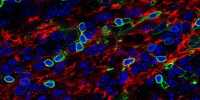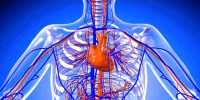Fasting for medical purposes (fasting treatment) has a long history in Europe and is well-established as a defined therapeutic method in dedicated fasting hospitals or clinical departments for integrative medicine. Fasting’s additional favorable effects are confirmed by observational data and significant evidence from experimental studies, which demonstrated calorie restriction and intermittent fasting to be associated with the slowdown or prevention of most chronic degenerative and chronic inflammatory disorders.
Fasting periods with restrictions on solid food intake are performed around the world for a variety of reasons, most of which are traditional, cultural, or religious in nature. There is a substantial body of empirical and observational data that medically supervised modified fasting for 7-21 days is effective in the treatment of rheumatic disorders, chronic pain syndromes, hypertension, and metabolic syndrome. Randomized controlled experiments have demonstrated the therapeutic effects of fasting followed by a vegetarian diet in rheumatoid arthritis.
Our findings contribute to a better understanding of the molecular mechanisms behind these disorders and may eventually lead to the development of effective fasting-based therapeutics.
Stephan Herzig
Voluntary fasting, such as interval fasting, is good to many people’s health, depending on their specific circumstances. Controlled periods of fasting, for example, can help to prevent and improve conditions like diabetes and obesity. Researchers have discovered that the immune system plays a key part in ensuring that fasting has a good effect on our bodies. The new discoveries will aid in the development of more effective fasting-based medicines.
Previous research has demonstrated that fasting can influence the immune system to treat a variety of chronic inflammatory disorders, but less is known about how immunological responses may influence a healthy metabolism. Because the liver is a crucial hub and regulator of metabolism, a group of researchers focused on understanding how liver cells and immune cells present in the liver communicate with each other during fasting. Helmholtz Munich, Ulm University, the Technical University of Munich (TUM), the German Center for Diabetes Research (DZD), the Heidelberg University Hospital, and the University of Southern Denmark collaborated on the project.

Immune activity is necessary for metabolic response to fasting
The researchers examined the DNA of liver cells and immune cells to see which regions of their DNA were active and which messenger molecules were released as a result. Their findings demonstrated that these cells were talking with one another and emphasized the role of a protein that is expressed in practically all cells in our body, specifically the glucocorticoid receptor. “We observed that this receptor in particular permitted cross-talk between cell types during fasting in immune cells. We observed a breakdown of fasting signals in the liver cells by eliminating the receptor solely in immune cells. This suggests that immune cells have the ability to directly alter the effect of fasting on our metabolism” says Anne Loft of Helmholtz Munich.
Ulm University’s Giorgio Caratti and Jan Tuckermann add: “This is the first time we’ve seen this procedure under ‘healthy’ conditions. We were aware that immune responses may alter our metabolism in an unhealthy environment, but this was novel to us. It demonstrates that for a balanced metabolic response to fasting, a modest amount of immunological activity, or inflammation, is required.”
“Voluntary fasting has been found to help avoid a variety of human metabolic illnesses, including type 2 diabetes and obesity. The number of people suffering from not just these metabolic disorders is astonishing, and it shows no indications of abating. Our findings contribute to a better understanding of the molecular mechanisms behind these disorders and may eventually lead to the development of effective fasting-based therapeutics “According to Stephan Herzig, the study’s leader at Helmholtz Munich.
Another advantage of fasting is that it promotes long-term lifestyle changes and the adoption of a healthy diet, which may be mediated through fasting-induced mood enhancement. Fasting-induced neuroendocrine activation and hormetic stress response, enhanced synthesis of neurotrophic factors, reduced mitochondrial oxidative stress, general lowering of aging-related signals, and promotion of autophagy are only a few of the processes that have been found. Fasting therapy has the potential to help in the prevention and treatment of chronic diseases, and it should be studied further in controlled clinical trials and observational research.















